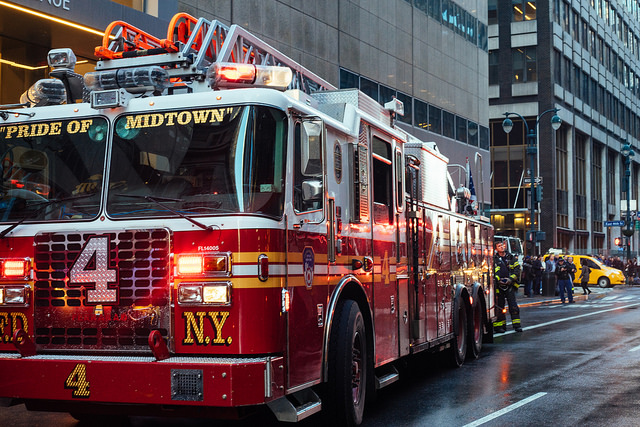
Panic is not your friend when it comes to home emergencies. That fight-or-flight syndrome affects individuals in wildly different ways. Some people freeze during a crisis, and some attempt to flee without any thought or plan. To prevent this, training yourself and your family on what to do during any expected home emergency is very useful. Experts in survival training routinely mention that a person will default back to their level of training when experiencing a stress-inducing situation. There is a hierarchy of what to do during an emergency, and here is who to contact first depending on what the urgency is.
Pounding on Your Door in the Middle of the Night
It would be unexpected for you to be suddenly awakened to the sound of someone pounding on your door in the middle of the night. It could be a criminal trying to gain access, and the pounding sound could be someone kicking and trying to force the door open. It could be your neighbor who is experiencing an emergency and needs your help. The 2017 hurricanes in Texas and Florida had law enforcement officers and emergency personnel going door to door in some neighborhoods warning residents to evacuate. Television news footage showed sheriff’s deputies in one community knocking very loudly on doors while yelling out an identification and why they were there. It was dark and could have scared people, but it was necessary.
If you hear noises, such as someone pounding on your door, do not be afraid to call 911 before you go to investigate the sound. It is okay to have a 911 operator on the phone with you if you hear a “bump in the night” or are afraid that someone is trying to break in. It is a better-safe-than-sorry approach. If noise is just your neighbor’s cat knocking over your garbage can, the emergency is averted. If it turns out that there is an intruder, you already have emergency services on the line to send help.
Fire, Gas and Carbon Monoxide Emergencies
Fire spreads fast. Fire experts recommend that if you cannot extinguish a fire in less than 10 seconds, you should evacuate. People have died in futile attempts of trying to use fire extinguishers and other methods of extinguishing common household fires. Unless a fire is minimal and not spreading, you should immediately order everyone in the house to get out. The little time you have before incapacitating smoke spreads throughout the house should be spent alerting everyone to evacuate. Get your phone and dial 911 immediately to inform the fire department of an emergency before it’s too late.
If a carbon monoxide detector sounds an alarm, get outside to fresh air immediately. If the colorless, odorless gas is present, you can be overcome while attempting to get everyone else evacuated. It is better to get outside and alert the fire department of an emergency like this before it is too late. Firefighters have self-contained breathing apparatus masks to be able to do search and rescue without being overcome by carbon monoxide. If you smell natural gas or propane, do not activate any electrical devices, including telephones and light switches, and get out. Take your cell phone or cordless phone, and call 911 for help from outside and away from the gas fumes.
Medical Emergencies
Call for help first. That is the most important thing to remember even if you are rushing to stop bleeding or initiate CPR. While moving to help a victim of a medical emergency, get 911 on the phone in the process. It is critically important to get paramedics or EMTs responding to your home while you are in the process of rendering aid. Call even if you are not entirely sure of the true nature of the emergency. It is better to have an ambulance call canceled than it is to be waiting longer for it to arrive. Uncontrolled bleeding, difficulty breathing and victims who are unconscious should always initiate a call to 911. You can still place the phone on the floor and repeatedly yell out your address and the emergency while starting immediate aid to help.
To make it easier to get the right emergency response dispatched to your home, a wireless home security system is a valuable option. Your home’s windows and doors will be protected to alert yourself and a professional monitoring agency of any intruders. Your wireless home security system can also include smoke, carbon monoxide, and natural gas/propane detectors that alert you with a siren and also notify the monitoring agency automatically. Plus, your home is protected by the clock whether you are sound asleep in bed or on vacation. Trained agents inform the correct emergency personnel whether it is a medical, fire or intruder emergency at your home.







